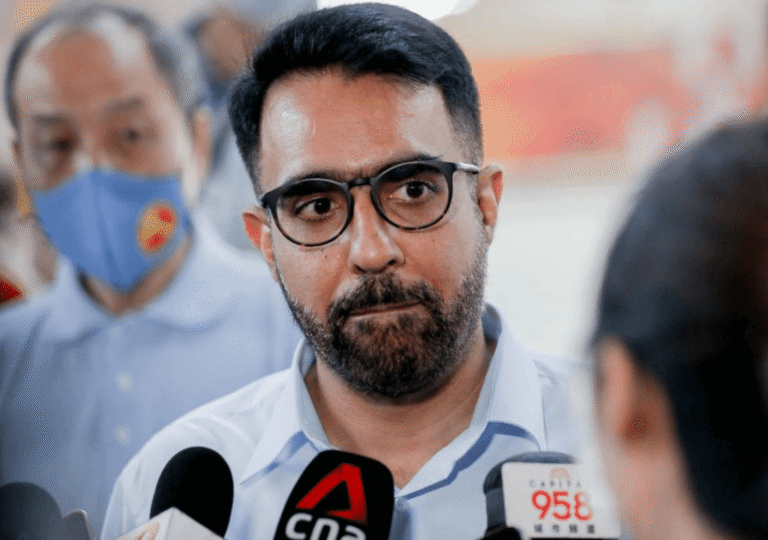Swifties are insane; They are determined to go to any lengths to show support for Taylor Swift. Every album, event, and show she undertakes becomes a significant economic influx. Fans are willing to spend generously, constituting a substantial contribution to the economy. This phenomenon is even humorously referred to as “Swiftonomics,” highlighting the economic influence Taylor Swift carries. Economists are delving into the field of “Swiftonomics,” recognizing the undeniable impact of a superstar on the economy.
In Singapore, Taylor Swift is performing live for the first time. As part of her world-tourist Eras Tour, this will be the first of six sold-out shows in the city-state. Swift, who helped the US economy anticipate at least $5 billion more in consumer spending, would aim to strengthen Singapore’s economy as well. Apart from Taylor Swift, numerous other international celebrities have performed on Lion City stages, and the schedule of events for the future looks exciting. Singapore is becoming the new heart of concert culture, further cementing its position as the world’s entertainment capital.
In January, the British band Coldplay staged six performances at Singapore’s National Stadium, marking a significant milestone for the city-state. With an impressive 200,000 tickets swiftly purchased, the shows achieved a record-breaking feat, becoming the highest number of tickets sold by an artist in a single day in Singapore. Serving as a key destination for Coldplay’s Music of the Spheres World Tour, this event had a profound impact on Singapore’s tourism industry.
Agoda, a leading Asia-Pacific travel platform, reported a substantial surge in search traffic for accommodations in Singapore during the concert dates. Notably, interest in these dates skyrocketed to 8.7 times higher after Coldplay initiated ticket sales in June. The surge was primarily fueled by neighboring countries, particularly Malaysia and Indonesia.
Following the announcement of the singer’s concert dates in Singapore, hotel bookings for March 2024 experienced a remarkable 10% surge, as indicated by data from hotel analytics company Smith Travel Research. With Taylor Swift performing six shows in early March, the month is poised to achieve the highest occupancy levels among the first eight months of 2024, according to data from STR.
The surge in demand extends to flights into Singapore, with Taylor Swift’s blockbuster tour visiting only three countries in the Asia-Pacific region: Japan, Australia, and Singapore. Both Singapore Airlines and budget airline Scoot confirmed to CNBC that there has been a substantial increase in demand for flights to Singapore in March, particularly from Southeast Asia. Jetstar Asia also reported a surge of approximately 20% in demand for routes connecting destinations like Bangkok, Manila, and Jakarta to Singapore.
Data from Trip.com further emphasizes this upward trend, revealing a noteworthy increase in Singapore-related bookings for the period between March 1 and 9, aligning with the concert dates. This surge is notably 275% higher than bookings recorded for the March 15 to 23 period, occurring later. Specifically, inbound flight bookings for March 1 to 9 witnessed a 186% rise, while hotel bookings experienced a remarkable 462% increase compared to the March 15 to 23 timeframe.
The anticipated impact of Taylor Swift’s concerts on Singapore’s tourism sector is substantial, with expectations of generating approximately 350 million to 500 million Singaporean dollars ($260.3 million to $371.9 million) in tourism receipts. Previously regarded mostly as a business travel hub, the Lion City is currently utilizing the significant prospects brought about by major international music festivals to advance its hotel sector. It is projected that the possibility of arranging well-known concerts will increase Singapore’s tourism income by hundreds of millions of dollars.
The resurgence of the hospitality industry in Singapore gives it the opportunity to recapture its leading position in Asia, which was briefly contested by cities in the Middle East. A shift in focus for major events, including the Asia Cup football and global expos, has gravitated towards the Middle East, resulting in substantial business losses for Singapore. The city-state has faced tough competition from destinations like Dubai and Doha, which, with recent changes to Islamic laws, have presented themselves as increasingly hospitable, diverting attention and revenue away from Singapore. However, the commencement of concerts at the start of the year is poised to help Singapore regain its standing.
While Singapore may not possess the grandeur of its Arab counterparts, it boasts several advantages over the Middle East. Its strategic location between India, China, and Australia, all considered significant economies, positions it as an ideal destination. Unlike the Middle East, which often has stringent regulations and restrictions, Singapore provides a more accessible and open environment for hosting foreign events. This makes it an attractive option for Europeans and Americans looking to organize events in Asia.
Singapore’s tourism board and culture ministry have officially acknowledged that Taylor Swift received a government grant, although specifics about any exclusivity conditions tied to the funding remain confidential. The Singapore government, however, has indicated its intention to maintain exclusivity for the event within the country. KASM chairman Keith Magnus confirmed there was an understanding that it would be an exclusive performance in Singapore. While some criticize Singapore’s approach, others view it as a strategic move with economic benefits, even if it requires a substantial government grant.
While Singapore is heavily invested in tech manufacturing and finance, travel-related services still constitute 10% of the country’s GDP. Post-pandemic, event tourism is becoming a transformative force in the travel industry, with an increasing number of individuals willing to travel for concerts or sporting events. Beyond the immediate revenue generated by concerts, hosting A-list performers can result in enduring reputational benefits for the host countries. Following Taylor Swift’s visit, Bruno Mars and South Korean pop star IU are slated to perform in Singapore.







